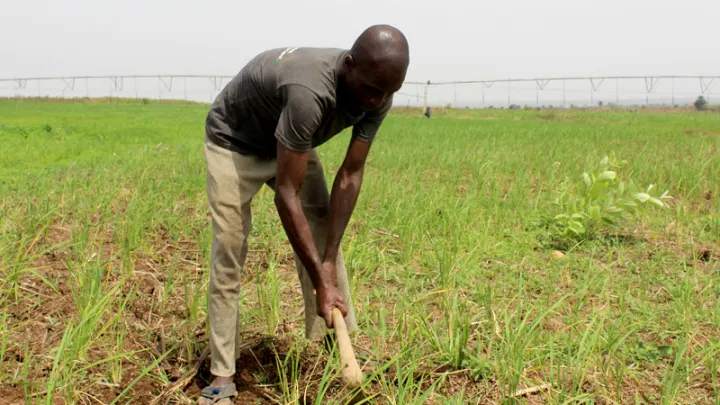By Atoyebi Nike
The Dean of the Faculty of Agriculture at the University of Jos, Professor Patrick Kwaghe, has raised concerns about the heavy reliance on synthetic inputs by Nigerian farmers, warning that such practices have led to trade restrictions from several Western nations.
Speaking during the inauguration of a new organic produce market in Jos, Plateau State, Prof. Kwaghe explained that the export of Nigerian farm goods had come under scrutiny after testing abroad revealed unsafe levels of chemical residues. “Many of our products were rejected because of the high chemical content,” he said, adding that such feedback should encourage a transition toward natural and eco-friendly farming techniques.
The newly launched market, named Gidan Gona Hub (Jos Organic Farmers Market), is designed to provide a platform for distributing chemical-free farm produce ranging from fruits and vegetables to fish cultivated using strictly organic methods. The initiative was developed by Oxfam in partnership with COCIN Community Development Panyam (CCDP) and Urban Food Crews in Jos North and South LGAs, with support from the AGILE Project.
Oxfam’s Acting Economies Manager, Peggy Maimaji, emphasized the significance of urban agriculture in enhancing food security and climate resilience in cities like Jos. According to her, the Urban Food Hive (UFH) Project is revolutionizing urban farming by training growers in agroecological techniques and the use of organic waste composting, turning farming into a viable and sustainable livelihood.
Maimaji further noted that with the growing challenges of urban poverty and food scarcity, investing in circular agricultural economies provides not only healthier food options but also empowers communities to reduce waste and increase local production.
As the conversation around food safety and export viability continues, agricultural experts and stakeholders are calling on the government to adopt policies that discourage overdependence on harmful chemical inputs and promote organic alternatives.


